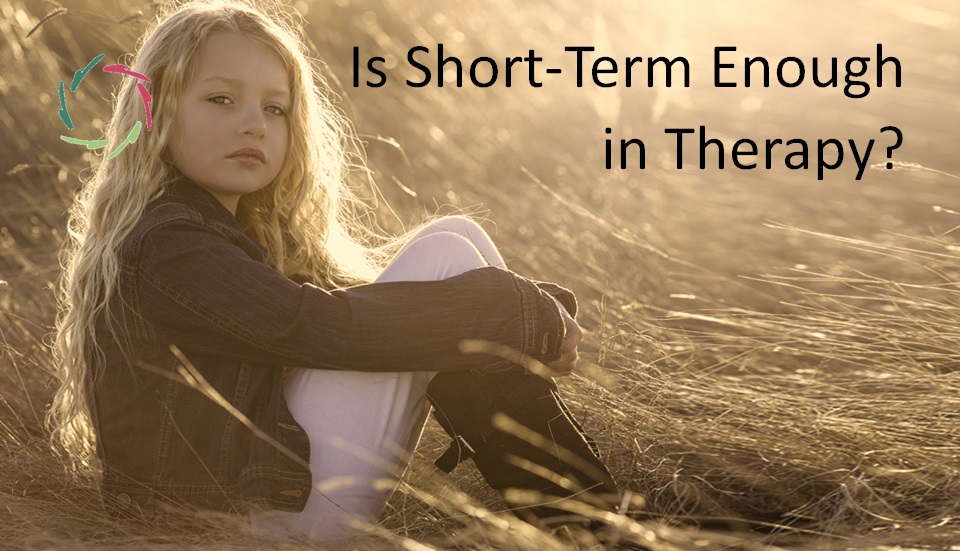Is Short-Term Enough in Therapy?

This issue is relevant to any therapy. In my view, it is most pertinent to psychotherapy.
A clear and present tension
In psychotherapy, we may expect the quality being largely related to effect-longevity. To many people – as to me – a temporary feel-good is not what is expected from psychotherapy.
Contrast this with pharmacotherapy. A simple painkiller is not expected to have a long-lasting effect on the individual’s pain. It doesn’t carry that connotation at all.
Psychotherapy is expected to go further than the symptom. However, there is tension in this. Do most clients desire to be permanently and fundamentally changed?
Also, it is not generally what psychotherapeutic research measures. It is not what generally gets published as success rates. Indeed, that would be challenging in the real world due to so many confounders. It will be more feasible in the case of Lisa. [see: “Lisa“]
Or is short-term enough?
The best may be to ask the clients themselves as part of their therapy. Going deeper into this issue may help any client know himself better and clarify the goal(s) one has in life and related to specific symptoms.
Is the client willing to go quite deep into the message of the symptom(s)?
An effort towards feeling this is a ‘communication with the symptom.’ This is already communication with oneself in-depth if done well and with proper support. As you may know, in AURELIS-coaching, this is always important.
The client’s idea about this may change during the coaching.
If it changes in congruence with the person as an individual (total-person), then with due respect, freedom, depth, and trust, it’s a road to be taken. It is the professional responsibility of the coach to let this be a gentle process.
Care should also be taken of the client’s social environment, especially with changing goals.
If chosen for easiness, short-term is almost never enough.
(Never say never.)
Personal change should be growth-oriented. Thus, short-term is almost never enough.
In social context, there is social responsibility. Thus, short-term is almost never enough.
A search for merely cosmetics is itself an issue to be coached.
Short-term is almost never enough.
It’s about beauty.
It’s about ethics.
It’s about energy.
It’s about the other side of the world
and so much more.
The future.
Kindness.
The smile of an unknown child.


